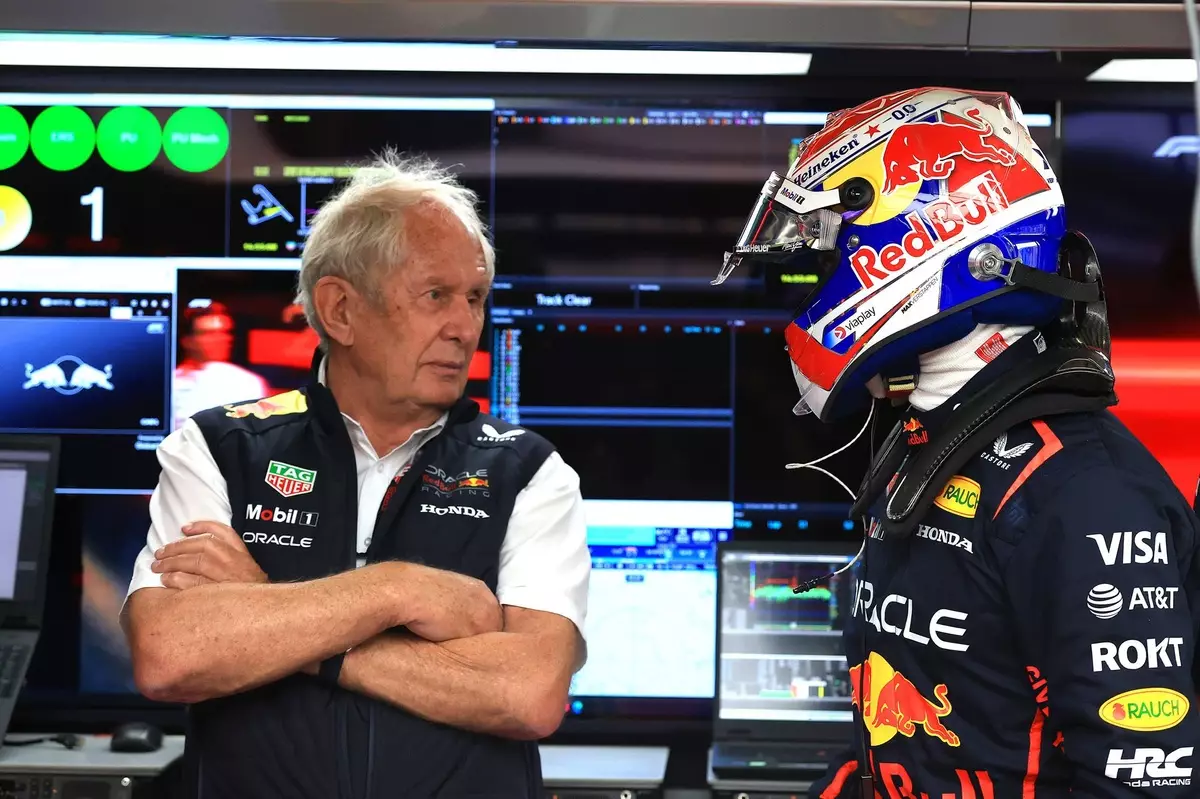The Spanish Grand Prix of this year unveiled not just a spectacle of speed and precision but also a raw emotional landscape that unfurled dramatically on the racetrack. Max Verstappen, the reigning Formula 1 champion from Red Bull Racing, found himself in the thick of controversy during the latter laps, raising questions about his judgment and decision-making under pressure. Helmut Marko, Red Bull’s advisor, made headlines with his candid evaluation of Verstappen’s behavior, encapsulating a moment that can only be described as a chaotic descent into madness. What began as a battle for podiums quickly spiraled into a series of incidents that left fans, experts, and the teams themselves reeling.
The Turning Point: Safety Car Implications
To understand the unraveling of the Dutch driver’s performance, one must first acknowledge the impact of the safety car on race dynamics. Verstappen’s condition was heavily influenced by the decision to restart the race on lap 61 after the safety car was deployed. During this restart, the stakes were unnaturally high; emotions were running high, and tempers were on a short fuse. It was then that Verstappen found himself relinquishing hard-earned positions, most notably to Charles Leclerc. Marko pointedly described this moment as a “decisive moment,” emphasizing the psychological toll such unexpected shifts can impose on a driver.
The situation escalated following the loss of position. Marko noted that while the tussle with Leclerc could be blamed on that driver’s aggressive racecraft, it was the subsequent skirmish with George Russell that ignited a blaze of fury within Verstappen. The incident triggered a series of reactions that culminated in what can only be described as an uncharacteristic misjudgment. Instead of maintaining composure and racing smartly, Verstappen’s frustrations manifested in an unprovoked contact with Russell, raising eyebrows across the sporting community.
Assessing the Aftermath: A Recipe for Penalties
After the dust settled on the race, the repercussions for Verstappen became all too clear. A ten-second penalty was slapped down, effectively sealing his fate and concluding an embarrassing day that saw him finish in tenth place. To add insult to injury, he also incurred three penalty points—pushing him dangerously close to a suspension from future races. Marko was quick to lend insight into Verstappen’s motivations, attributing the clashes to heightened emotions rather than a calculated strategy. The question arises: could better race management have mitigated the physical and psychological toll on Verstappen?
From a broader perspective, this incident raises an imperative inquiry into the mental preparedness required at the elite level of motorsport. The pressure not only exacerbates already high-stakes races, but it can also expose underlying emotional vulnerabilities. Marko’s observations about Verstappen’s “misjudgment” beg the question of whether Red Bull, as a team, could refine their approach to driver management, particularly in moments of crisis.
Unraveling the Mindset: The Psychological Impact
Verstappen’s subsequent apology on social media highlights an important aspect of accountability in sports. He characterized his actions as “not right,” a rare admission from a driver typically known for his fierce competitive spirit. What does this reveal about the psyche of a champion? The constraints of competitive integrity often clash with the desire to win at all costs, and Verstappen’s actions on that fateful day starkly illustrate this conflict. As Marko noted, while such admissions may not come easily for the young driver, they are essential in acknowledging one’s failures and reclaiming focus.
The parameters of rivalry between Verstappen and Russell further complicate the scenario. The palpable tension has been a subplot within the sport, necessitating the understanding that psychological factors can have a profound impact on race outcomes. These incidents do not occur in isolation; rather, they are products of a complex web of competitive dynamics, rivalries, and human emotions. It’s a reality every driver faces, yet not all handle it with the same degree of finesse.
Looking Ahead: Strategic Lessons Learned
As Red Bull heads back to the drawing board, it should consider the crucial lesson anchored within this chaotic race. The importance of maintaining mental fortitude in a high-pressure situation cannot be overstated. Motorsport, while primarily a test of speed and technology, is matched in intensity by the psychological battleground it embodies. In the quest for glory, it’s essential that teams foster not only technical proficiency but also resilience in their drivers. This incident should be a wake-up call for Verstappen, and indeed for all involved in the fierce world of Formula 1, revealing how one moment of emotional turmoil can derail a budding career full of promise.


Leave a Reply